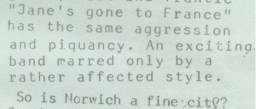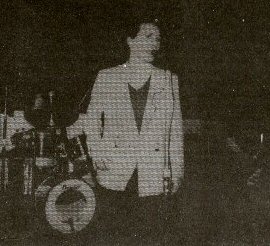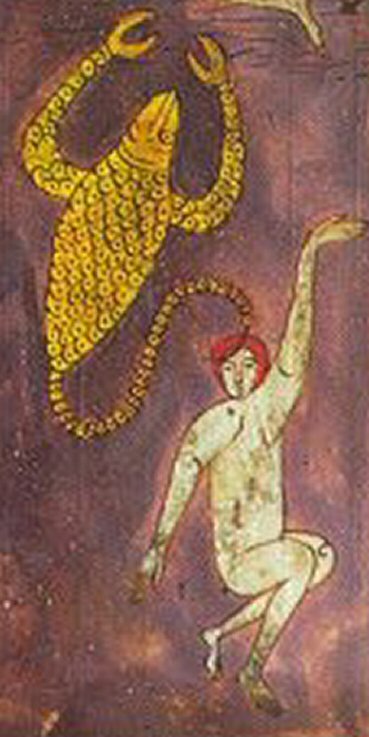Lars and Maud went up the hill to fetch a pail of water.
Lars fell down and clonked his crown and Maud came tumbling after.
They rolled and tumbled further down, tumbling pell mell,
‘Til they came bumping to a halt down in the dingly dell.
In the dell lurked the Grunty Man, who carried them off to his cave.
But fear not, tinies! For Lars was bold and Maud was very brave.
They shook their little fists and bawled and rent the sky asunder,
And made the Grunty Man commit a very foolish blunder.
He dropped them at the cave-mouth while he went to have a fight,
An illegal boxing match under the cover of the night.
The Grunty Man was pitted ‘gainst an awful, dreadful foe –
None other than Miss Peep, affectionately known as “Little Bo”.
She looked so pale and timorous, yet she packed a hefty punch,
And often bashed a dozen ogres before she had her lunch.
So when the Grunty Man stalked off to meet his Nemesis,
Lars and Maud ran off into the arms of Alger Hiss.
Yes, Alger Hiss, the communist spy from Washington DC!
Urbane and droll and stylish, dressed up to a T.
He took the tots to a meeting of his fellow-travelling Reds,
Where Stalinist propaganda turned their pointy little heads.
They went back to the cave and found the Grunty Man covered in gore.
Little Bo Peep had bashed him up, then bashed him up some more.
They recruited him to their cause, to overthrow the state.
Said Lars (or Maud) “We must act before it is too late!”
So Lars and Maud and the Grunty Man went back to the dingly dell,
And hid some microfilmed secrets at the bottom of the well.
But they were caught by Nixon, indefatigable in his zest
To place as many Reds as possible under house arrest.
He confined them to a house atop the hill they climbed for water,
A solid and a sturdy house well built from bricks and mortar,
Like the house of the three little pigs that withstood lupine huff and puff.
But Lars and Maud and the Grunty Man were Communists, sure enough.
So when the big bad wolf hove into view from o’er the hills,
They sang in praise of Stalin and then swallowed their cyanide pills.
And so the state was safe once more from Communist infiltration,
And Nixon was bathed in the praise of a relieved and grateful nation.
The Grunty Man and Lars and Maud were buried and forgot.
But Richard Milhous Nixon – he is not.












